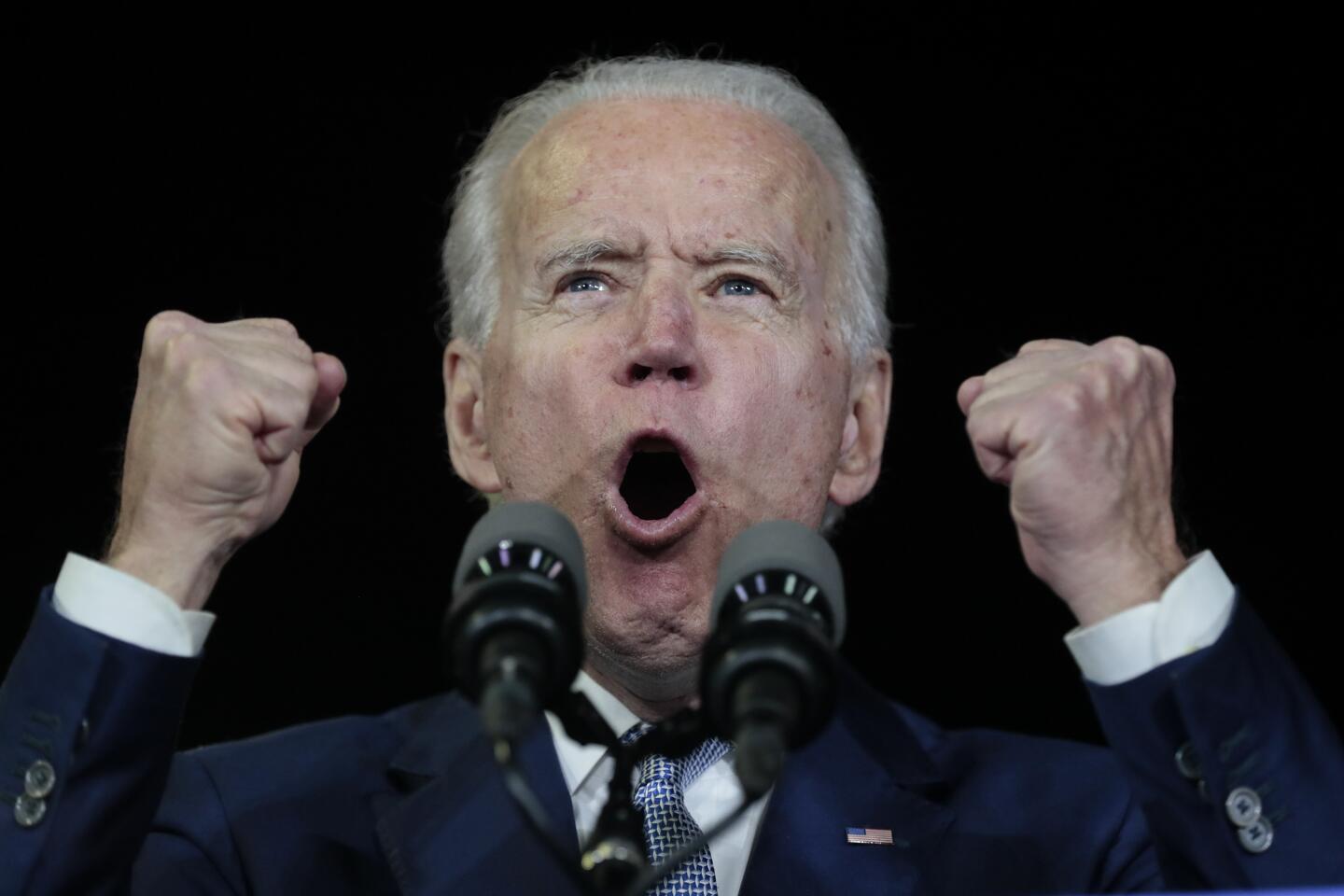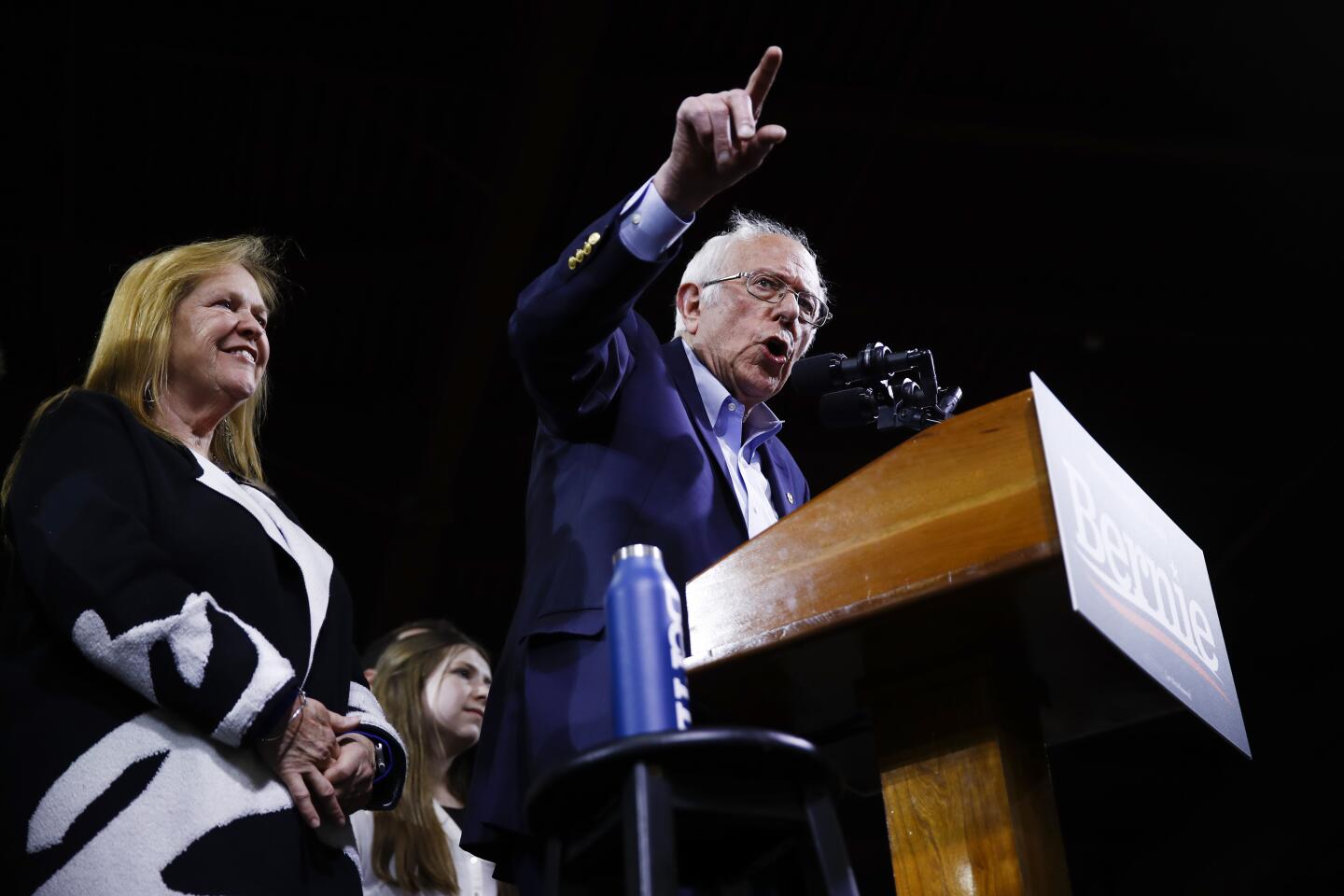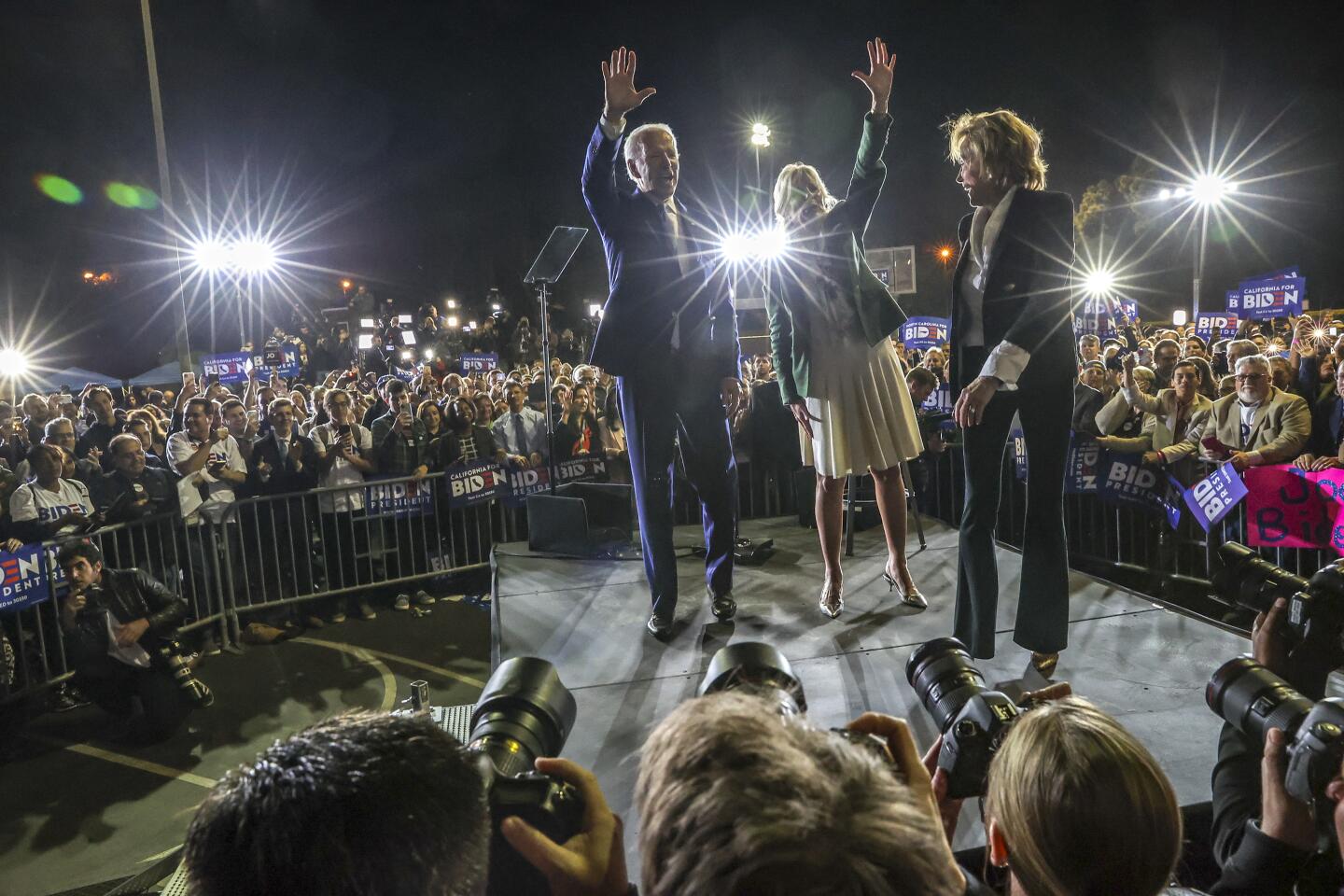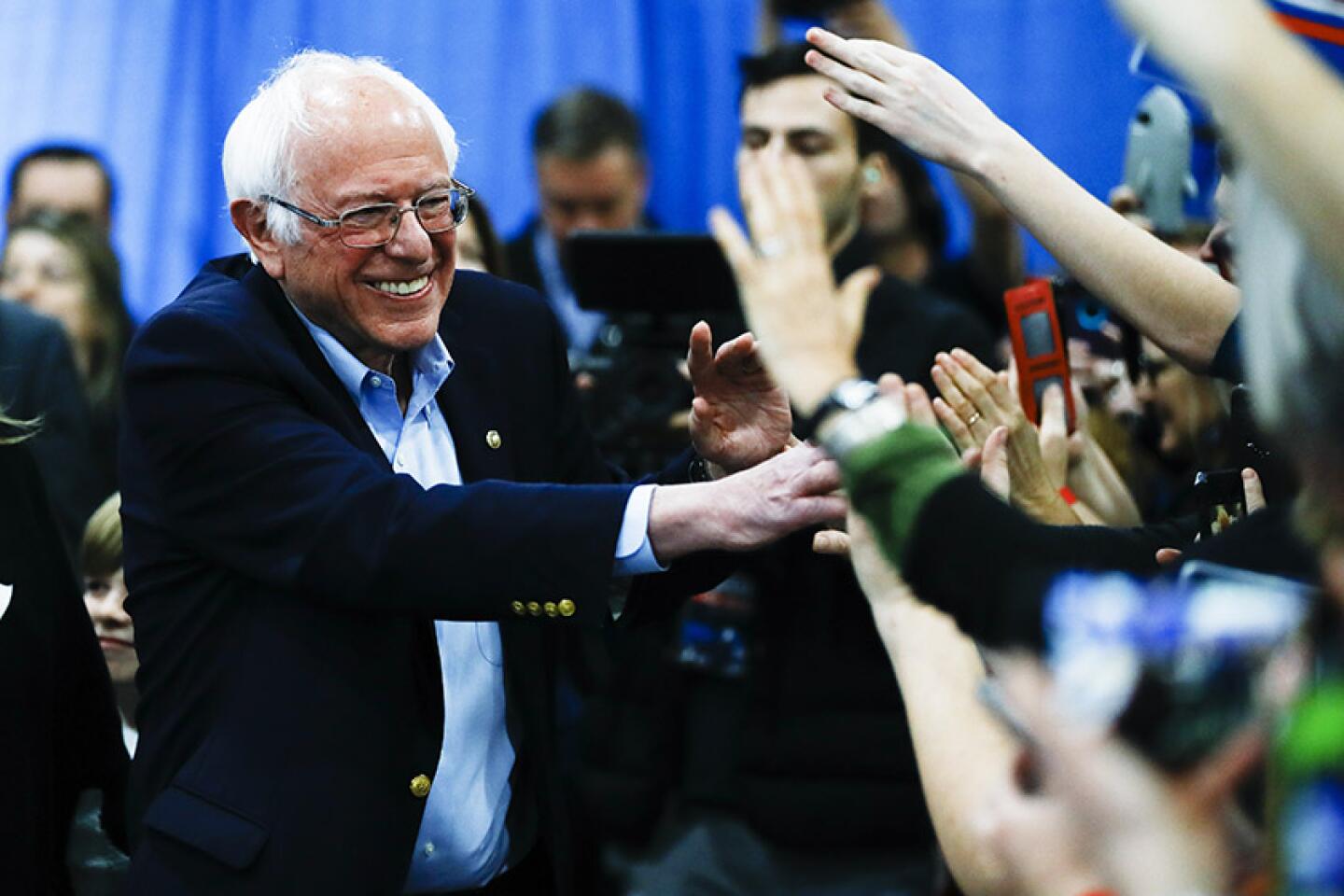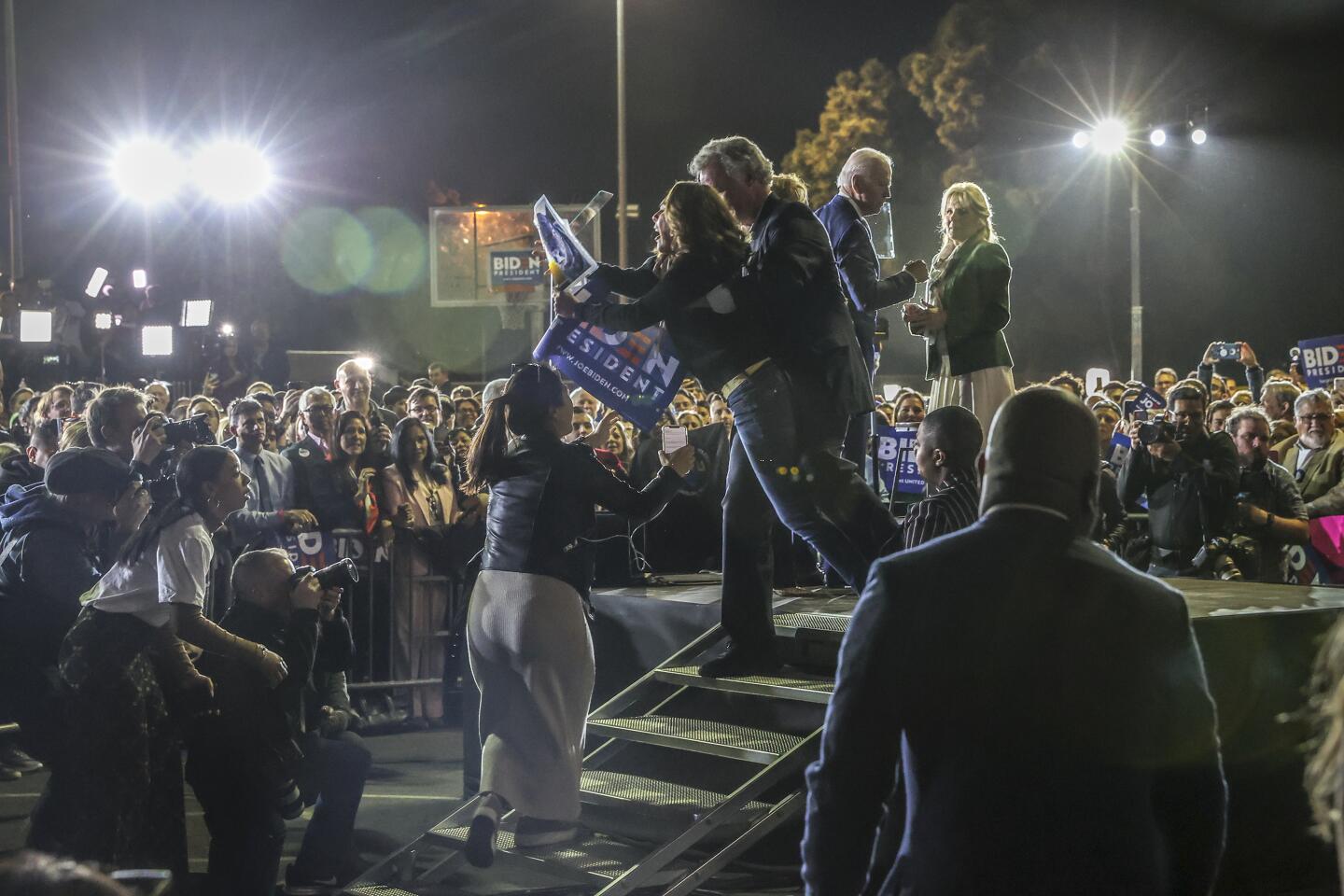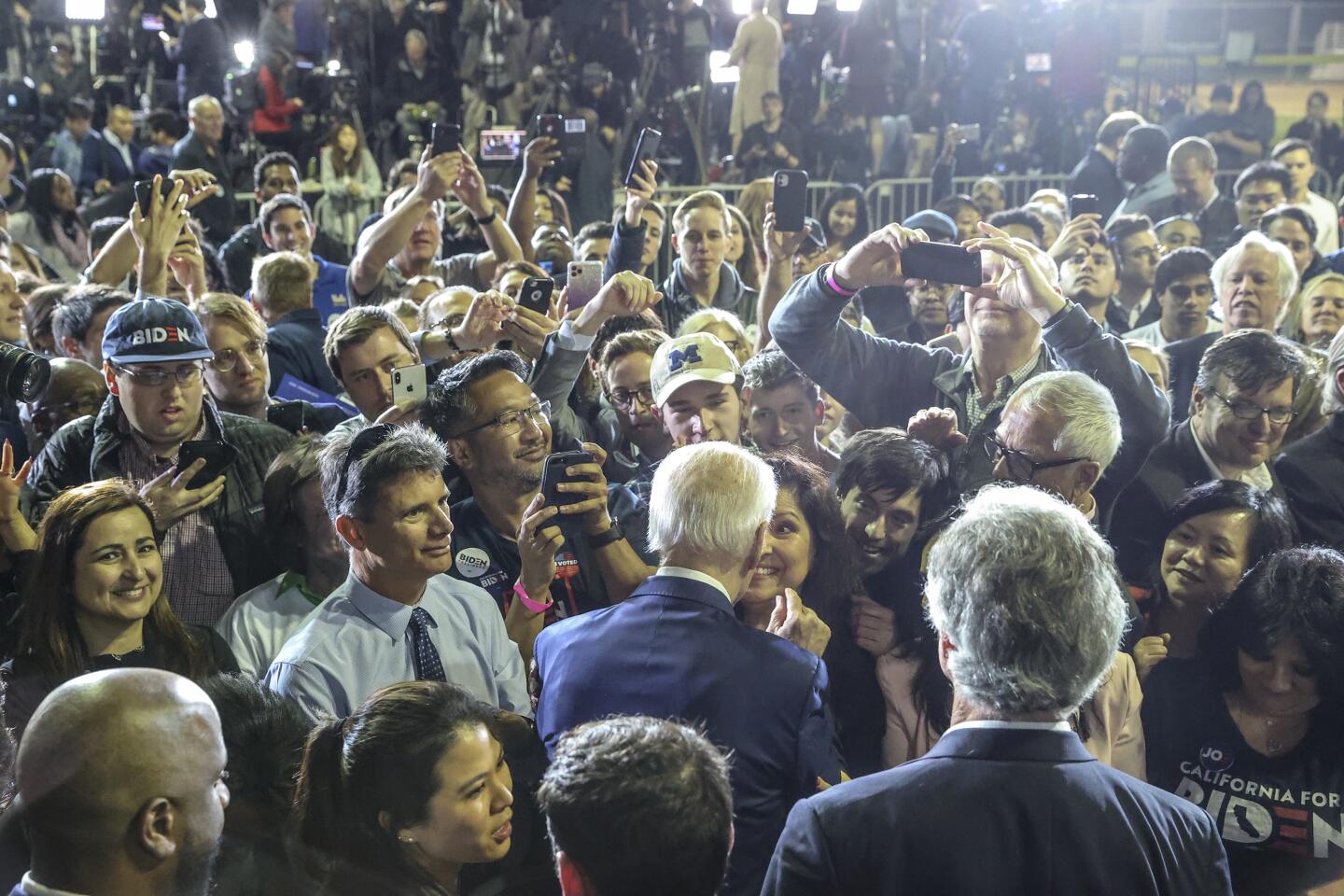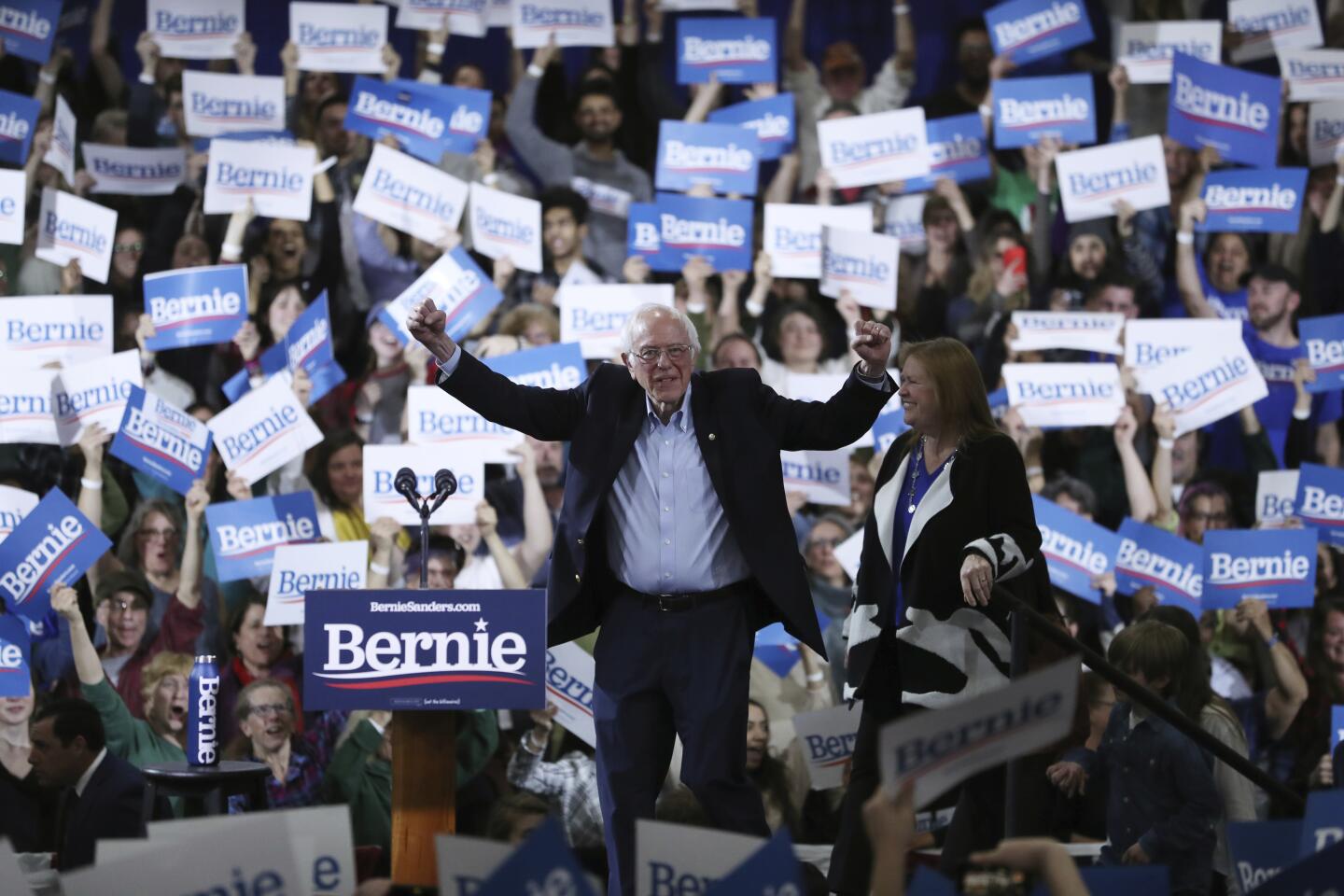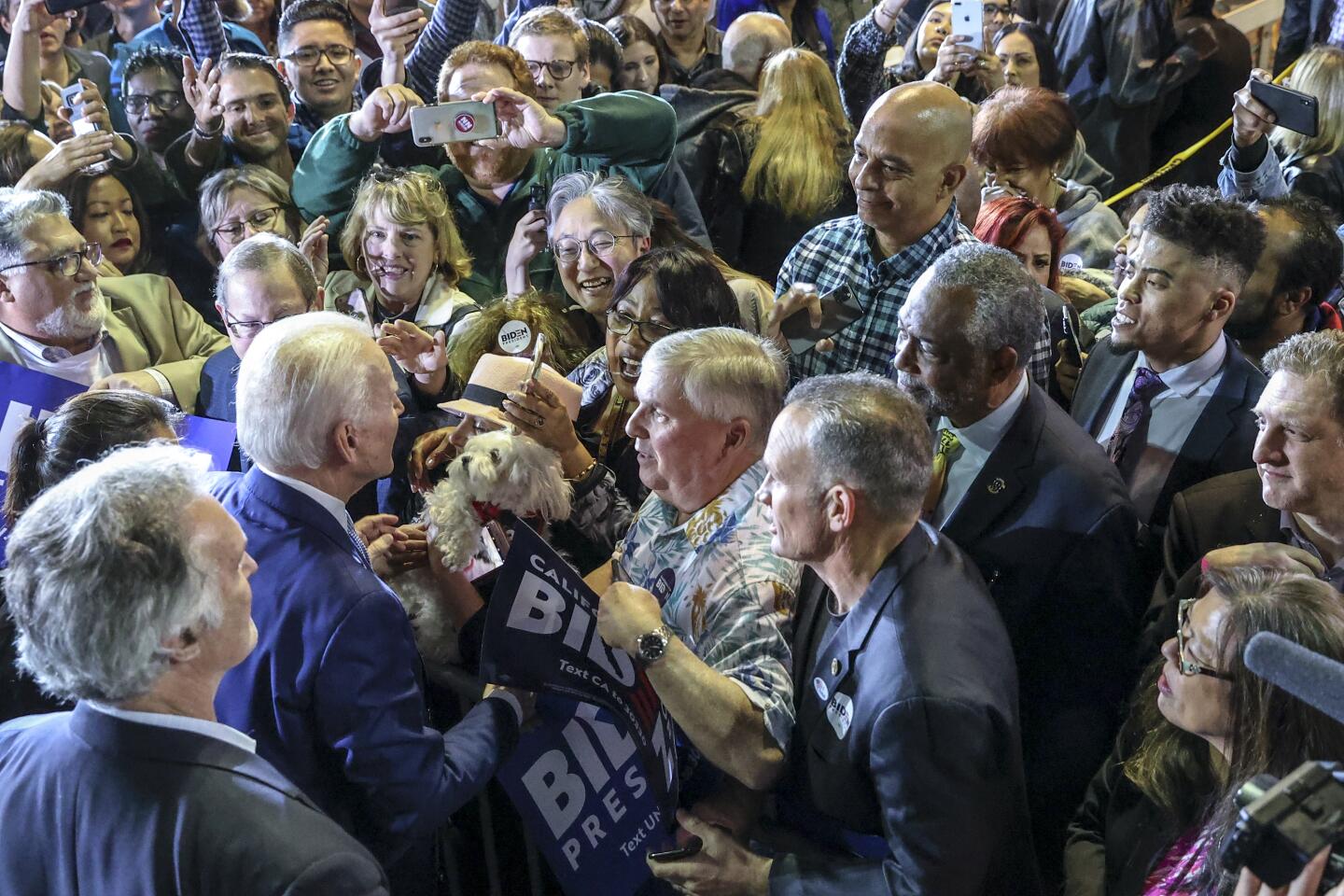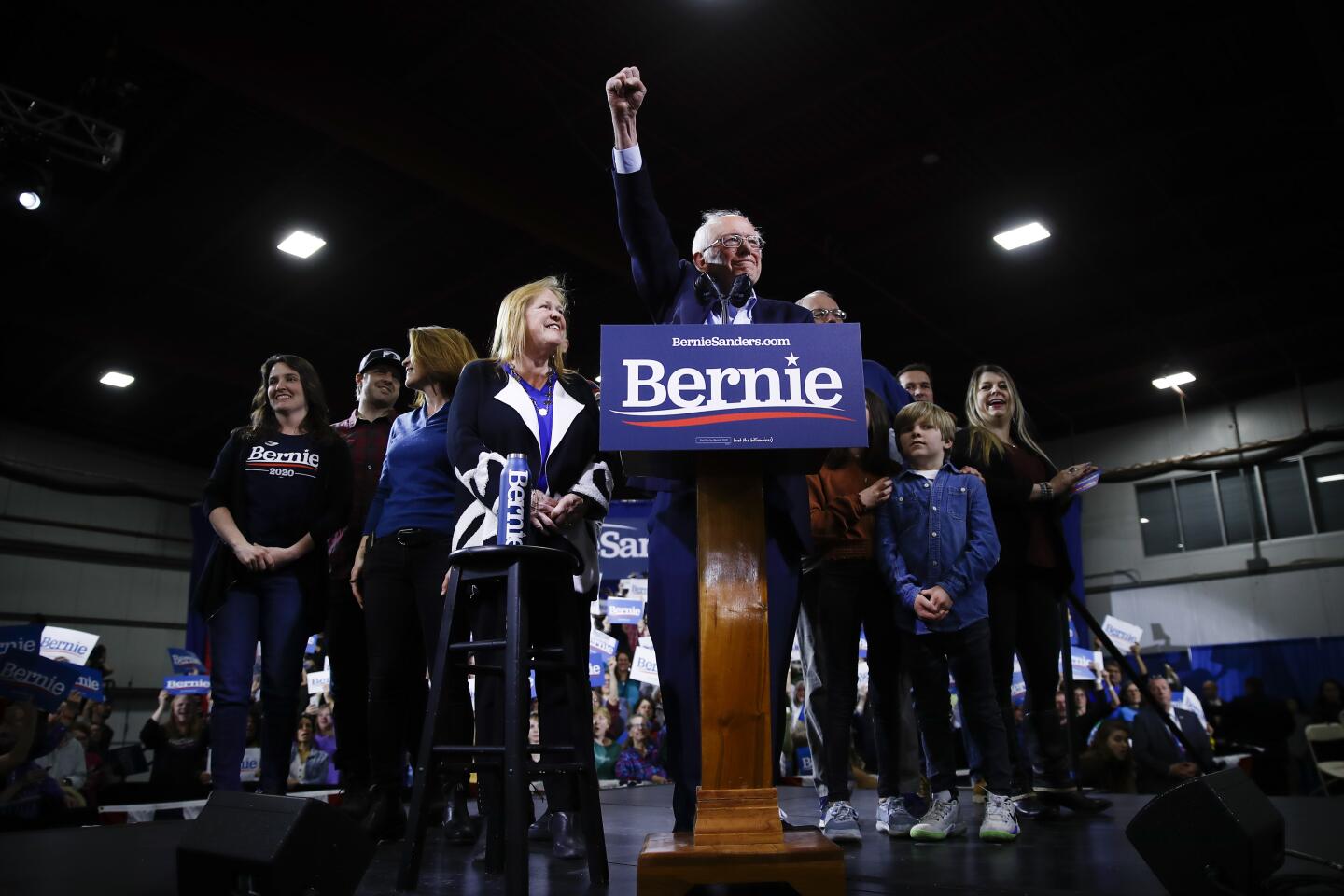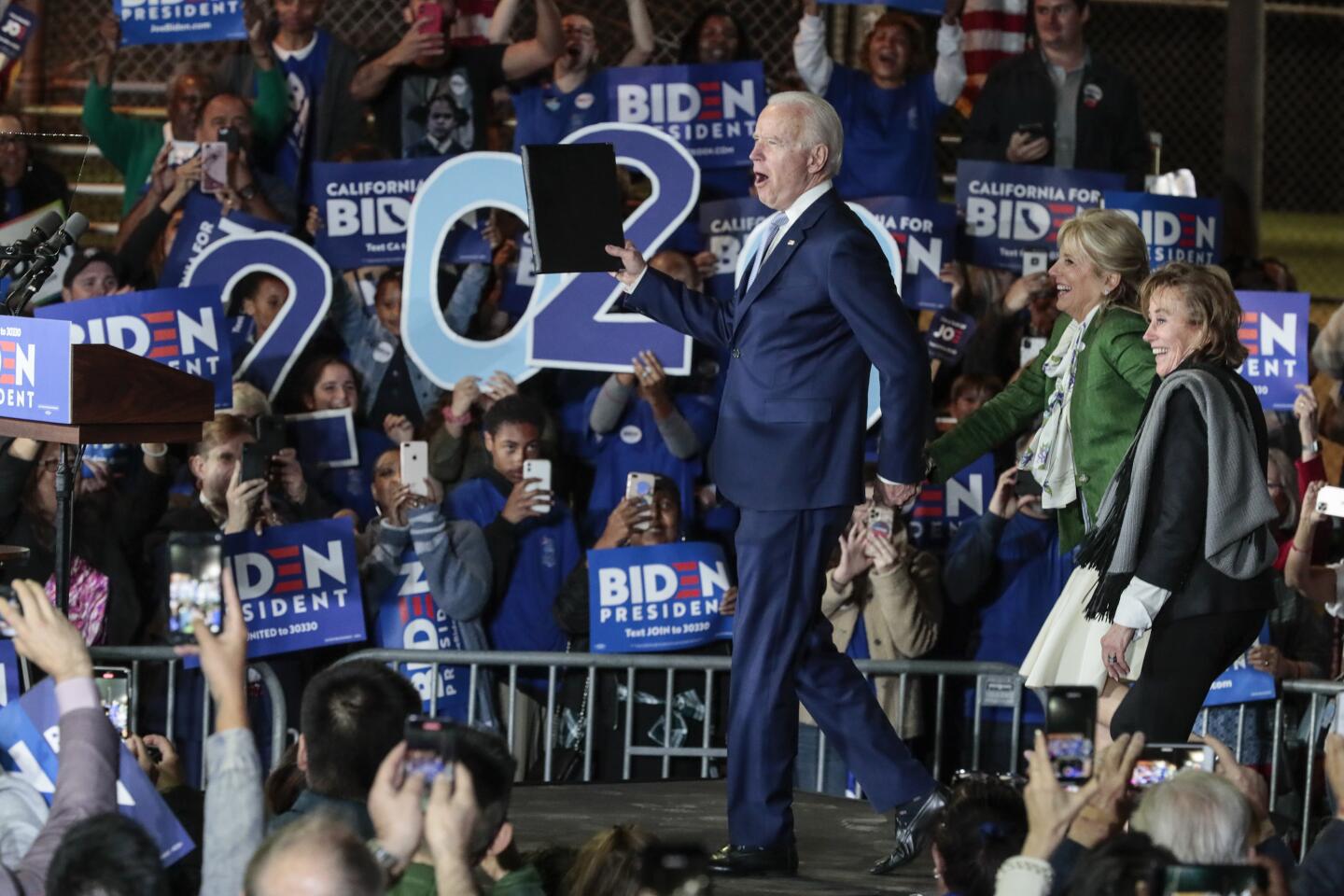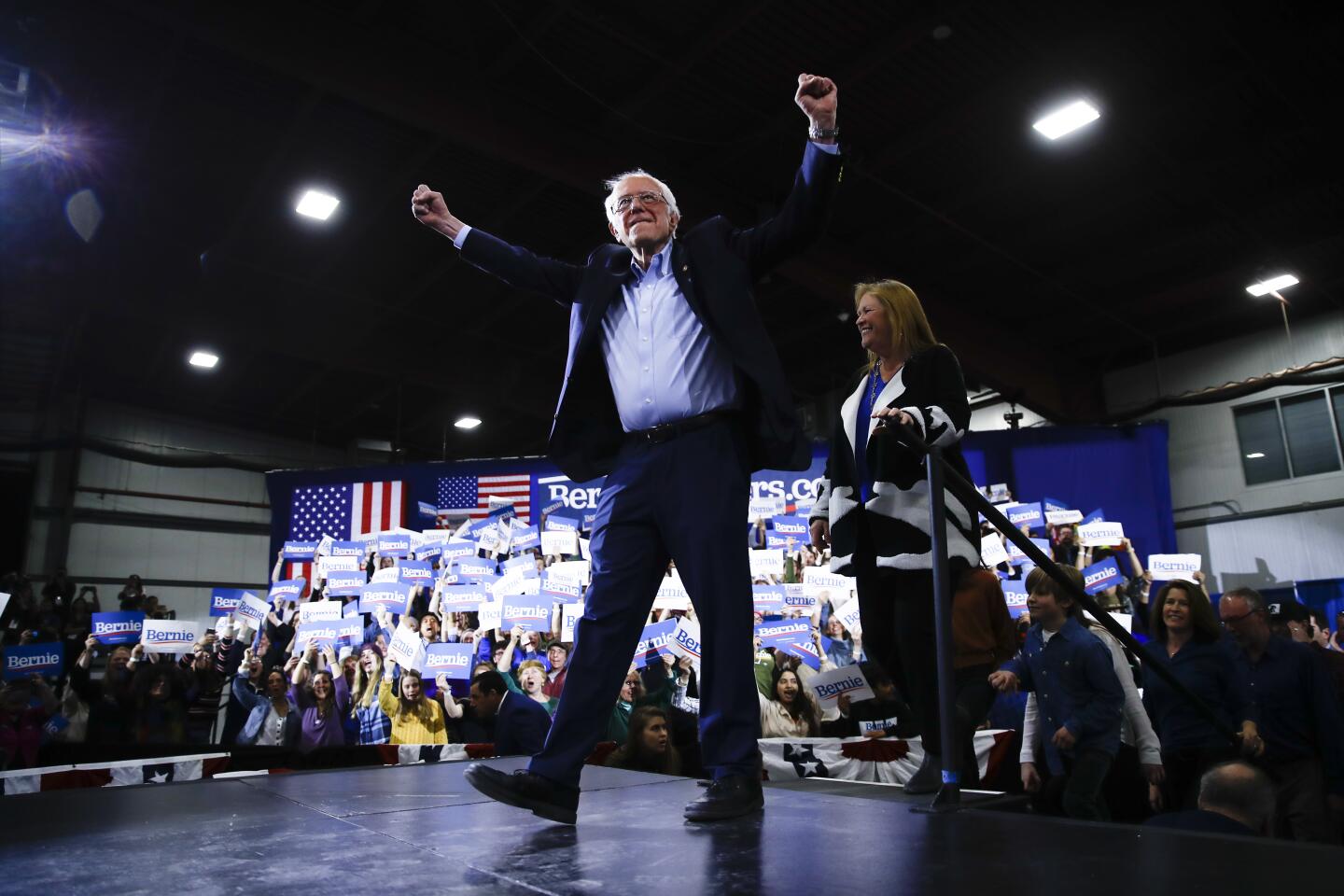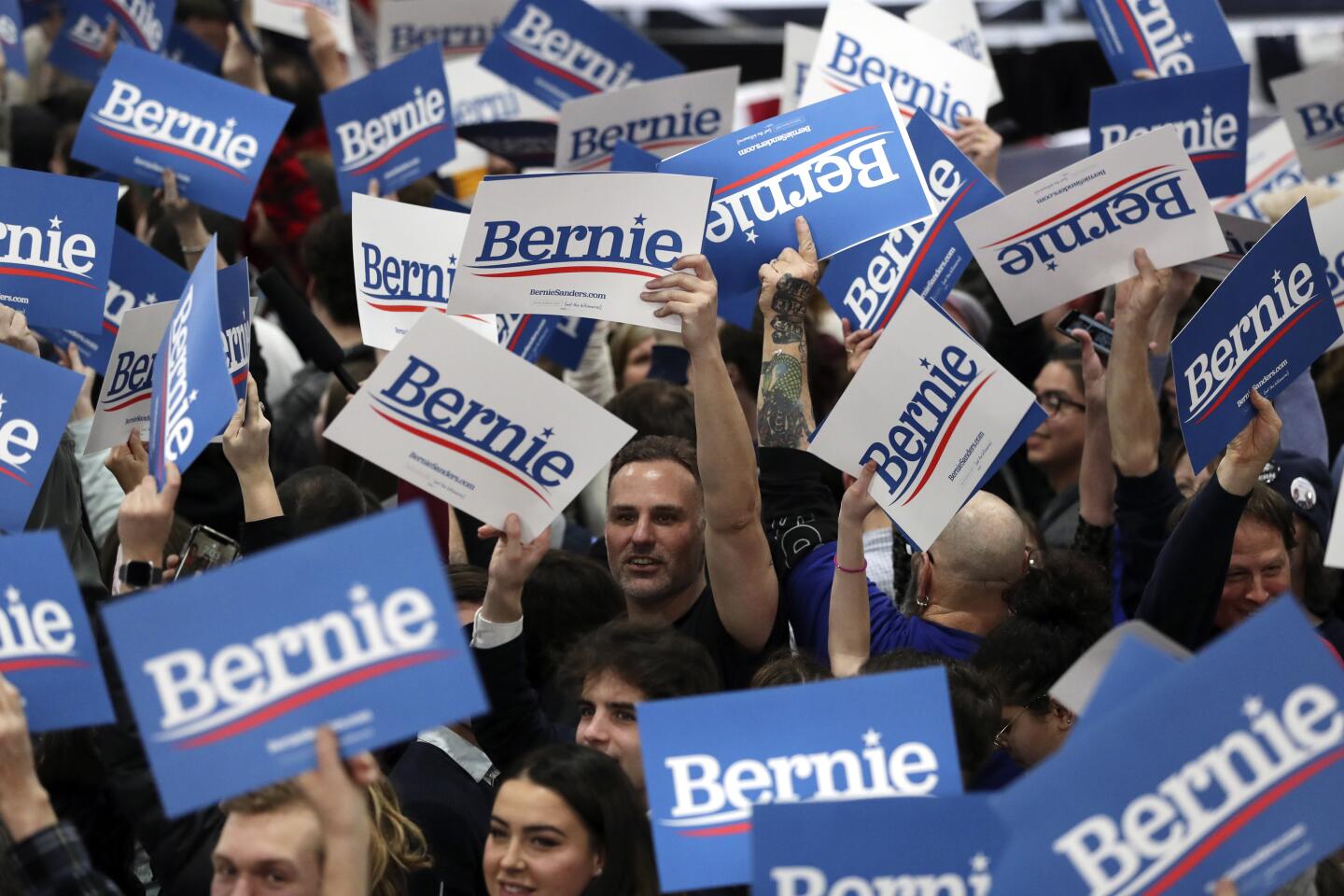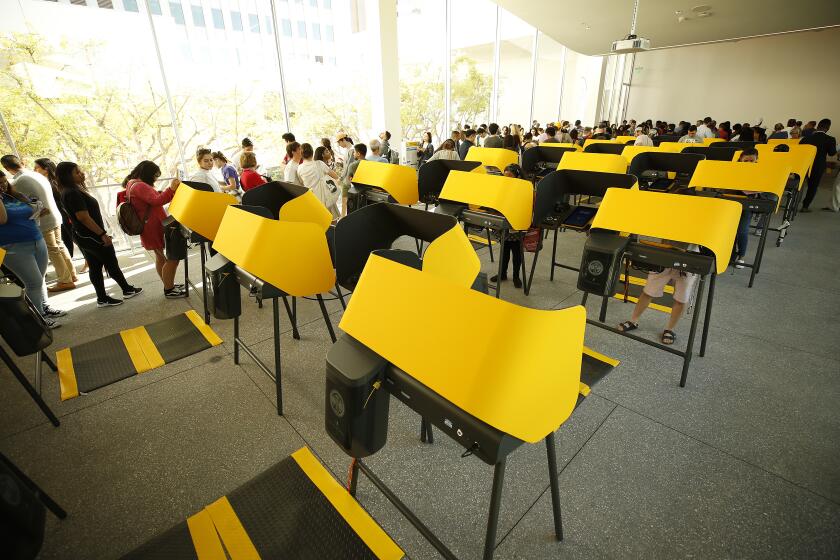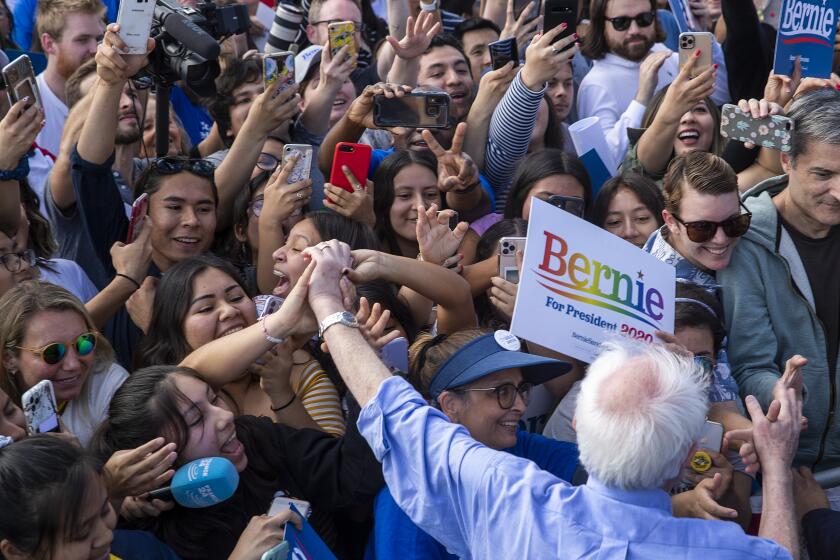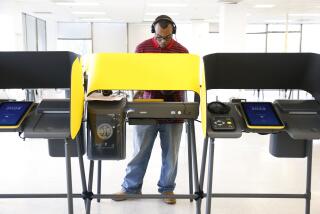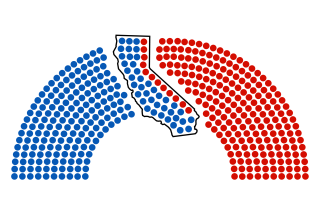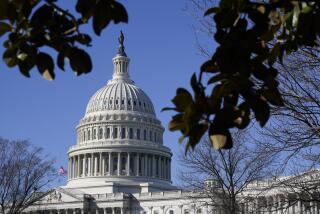California voters choose Bernie Sanders
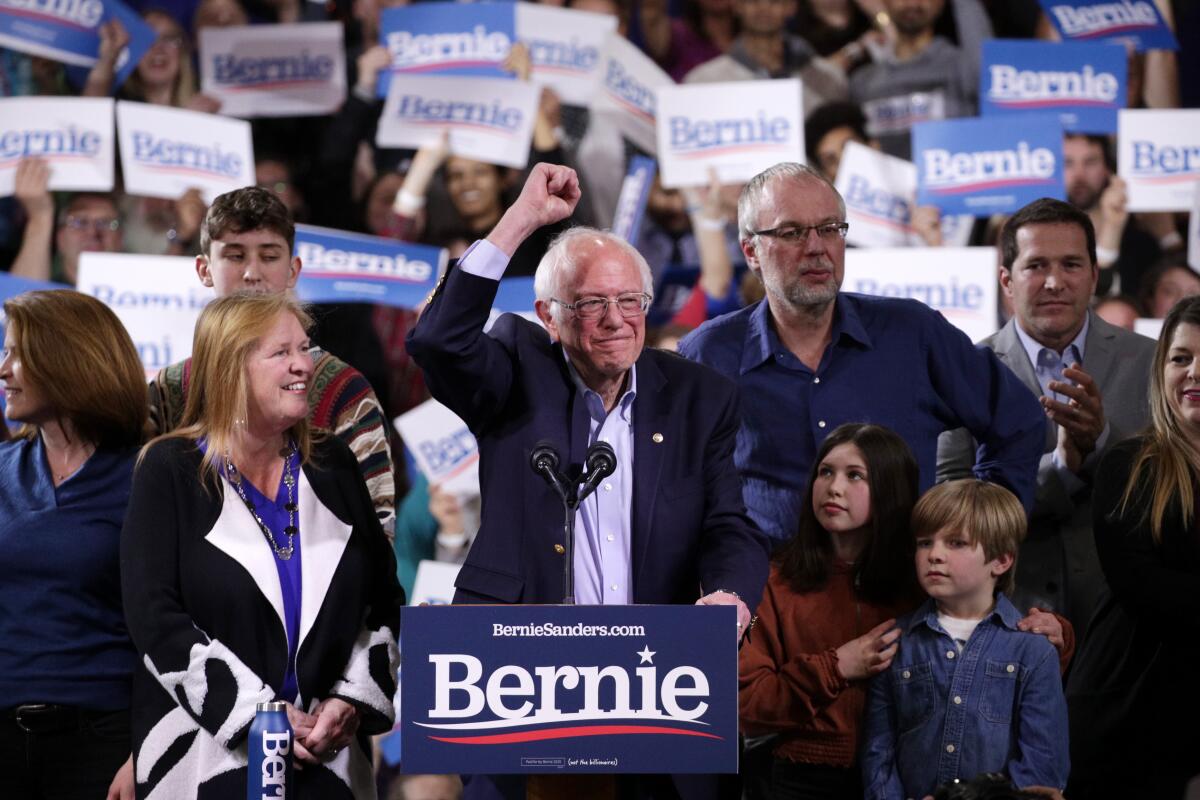
California, the marquee prize of the 14-state voting bonanza of Super Tuesday, has sided with Sen. Bernie Sanders, according to Associated Press projections.
Sanders was leading in early returns Tuesday night, but the question remains how much of the state’s trove of 415 delegates his competitors will claim. Former Vice President Joe Biden seems likely to have enough support to claim a significant number of delegates, and former New York Mayor Michael R. Bloomberg may as well. But the final delegate numbers will remain unsettled for days, if not weeks, as state officials count millions of provisional and late-arriving mail-in ballots and calculate the state’s complex delegate math.
The projection of Sanders’ win came immediately as the polls closed at 8 p.m., even as many voters remained in line, with widespread complaints of long waits at polling places. The AP based its race call on its exit polls, which found that Sanders had enough of a lead, particularly among votes that were mailed in early, to prevent Biden and Bloomberg, from catching up. Sen. Elizabeth Warren was lagging behind in fourth place in early returns but may still be in position to claim some delegates.
More than 4 million ballots were cast before Tuesday. As the later results roll in, they may contain good news for Biden, whose campaign has been infused with a fresh burst of energy in recent days. Late deciders in California sided with the Biden by a 10-point margin over Sanders, according to a separate exit poll conducted for the major television networks.
Sanders, the Vermont senator, addressing a home state crowd about an hour before the California polls closed, pinned his hopes for the night in part on a strong showing in the Golden State.
“I’m cautiously optimistic that later in the evening, we can win the largest state in this country, the state of California,” Sanders said.
Like elsewhere in the country, the presidential race in California has been volatile, with at least four contenders leading polls in the state at different points over the last seven months. Recent polling showed Sanders pulling away, pointing to a romp that had the potential to box out his competitors from scoring significant delegates.
But Biden’s victory Saturday in South Carolina and the burst of endorsements that came after it, boosted Biden’s chances here as in other states. How big a boost that turns out to be will remain unclear until the final vote tabulation. State officials have until April 2 to complete their canvass.
For Sanders, winning in California carries extra symbolic heft. He lost the state’s 2016 primary to Hillary Clinton by 7 percentage points, one day after the Associated Press had reported that Clinton had secured enough delegate support to clinch the nomination.
On the biggest day of the Democratic presidential primary calendar, 14 states — from Maine to California — held primaries on Super Tuesday. There were1,357 delegates at stake, just over a third of the votes at this summer’s nominating convention.The balloting shaped up as a battle between Sen. Bernie Sanders and former Vice President Joe Biden.Former New York Mayor Michael R. Bloomberg dropped out Wednesday morning after a disappointing showing, considering the hundreds of millions he’s spent on his campaign. Sen. Elizabeth Warren also fell well short of expectations. Our reporters in California and other key Super Tuesday states followed the day’s developments and will keep you up to date on the aftermath.Live Super Tuesday results Photos: Super Tuesday | 14 states hold primaries with 1,357 delegates at stake
This time, with California’s primary moved from June to March and a committed bastion of supporters lending Sanders an organizing head start, the Golden State factored significantly into his campaign blueprint. His strategists lumped California into the “first five” of crucial states — along with traditional early nominating states of Iowa, New Hampshire, Nevada and South Carolina — and built an extensive field operation with 105 paid staffers.
Sanders himself made frequent visits to the state, hosting rallies not just in the population hubs of Los Angeles and the San Francisco Bay Area, but often overlooked cities in the Central Valley.
His success hinged on building on his core support of young and very liberal voters with a concerted outreach to the state’s large Latino population. Sanders won 55% of that consequential bloc, according to the network exit poll.
“He sees us as human beings,” said Mildred Dimas, a 30-year-old Boyle Heights resident and daughter of Mexican immigrants. “He empathizes with our immigrant story.”
Biden was boosted by a strong showing among older voters, moderates and African Americans, according to exit polls.
“The momentum has changed in his favor,” said Jose Marroquin, a 67-year-old retiree from Los Angeles who had decided he was supporting Biden as soon as he entered the race. “I am actually thinking that the tide has turned.”
Vermont Sen. Bernie Sanders is depending on young voters to turn out in California.
Driven by the state’s yearning for political relevance, California officials moved the state’s primary to early March, up from June of the previous two elections, in hopes the results would shape the contours of the presidential race.
Although the state still got far less attention than the candidates lavished on Iowa and New Hampshire, Californians did get more opportunities to glimpse the candidates at rallies and other in-person events. The race was even more heated on the airwaves, with more than $120 million worth of television advertising blanketing the state since early 2019. Well over half of that came from one candidate, Bloomberg, who blitzed the state with advertising immediately upon entering the race in November.
Democratic political figures were quick to declare the early primary a success.
“It absolutely had the desired impact.... Candidates set up significant operations across the state during the primary, poured resources into communicating with Democratic voters and courted Democrats by focusing on important California issues,” said Rusty Hicks, chairman of the California Democratic Party.
Paul Mitchell, a political data specialist, said the recent swell of support for Biden among moderate party figures, including his former rivals — former South Bend, Ind., Mayor Pete Buttigieg, Sen. Amy Klobuchar of Minnesota and former Rep. Beto O’Rourke of Texas — was driven by the high stakes and a desire to deny Sanders a glide path to the nomination.
“The amazing events of the last 24 hours wouldn’t have happened if you didn’t have one-fifth of all the delegates you need to win the nomination being served up on Super Tuesday,” Mitchell said. “These events are happening because California moved its primary ahead.”
With the politicking drawing to a close, the focus now turns to counting — a notoriously protracted process in California, thanks to the popularity of mail-in ballots, which count as long as they’re postmarked by election day, and the availability of same-day registration, which leads to a large number of provisional ballots.
There are effectively 54 primaries going on in California; one based on the statewide vote total, which will divvy up 144 delegates, and 53 races in individual congressional districts, which together account for 271. In each contest, delegates are awarded proportionately among the candidates who get at least 15% of the vote.
“You’ll see a lot of movement in those delegate numbers over the course of the next few weeks once all the votes come in,” said Roger Salazar, spokesman for the California Democratic Party. “Our perspective is we’d rather have an accurate count than a fast count.”
Some savvy voters took the state’s prolonged tallying procedures into account when choosing how to vote. Lisa Marie Desai, a 37-year-old stenographer from Culver City, opted to drop off her mail-in ballot at her local voting center to ensure that her vote for Warren is counted sooner rather than later.
“I could’ve put my thing in the mail today and it would’ve been postmarked,” Desai said. “But I wanted to be a part of the data for today. I wanted to be part of the election day results.”
Times staff writers Melissa Gomez and Matt Pearce contributed to this report.
More to Read
Get the L.A. Times Politics newsletter
Deeply reported insights into legislation, politics and policy from Sacramento, Washington and beyond. In your inbox three times per week.
You may occasionally receive promotional content from the Los Angeles Times.
